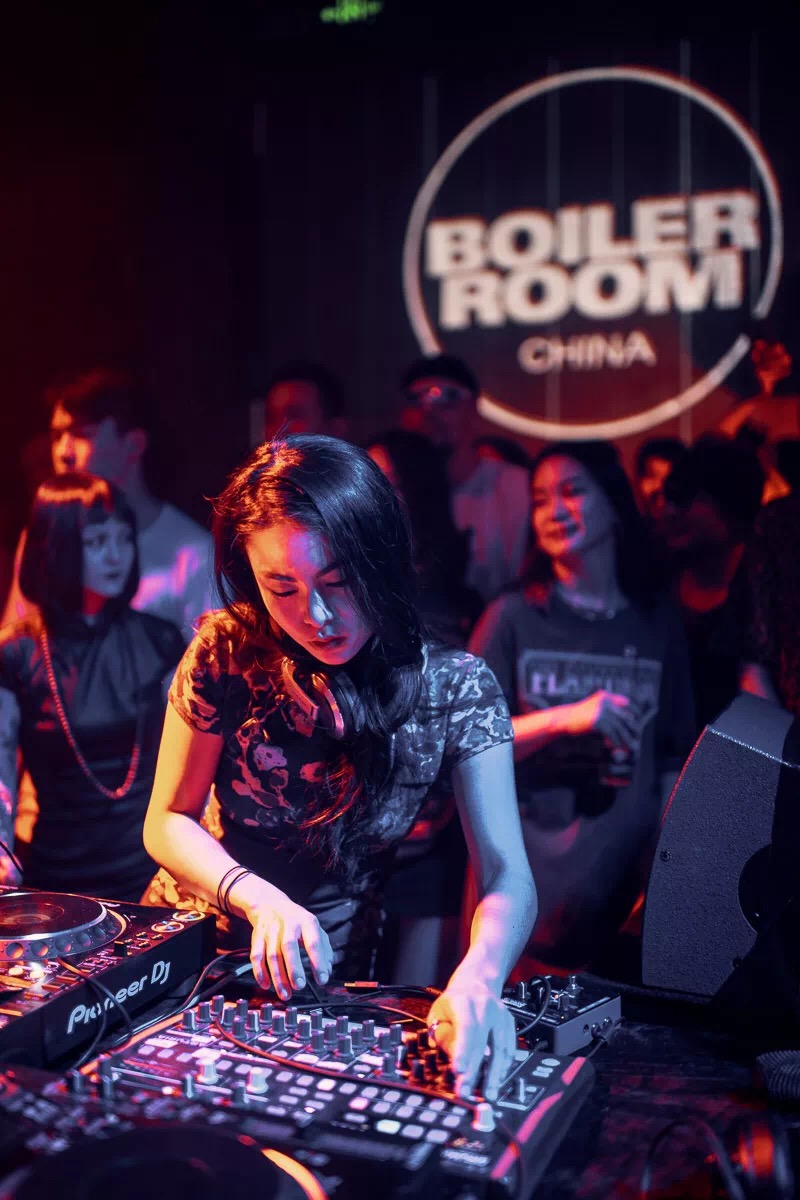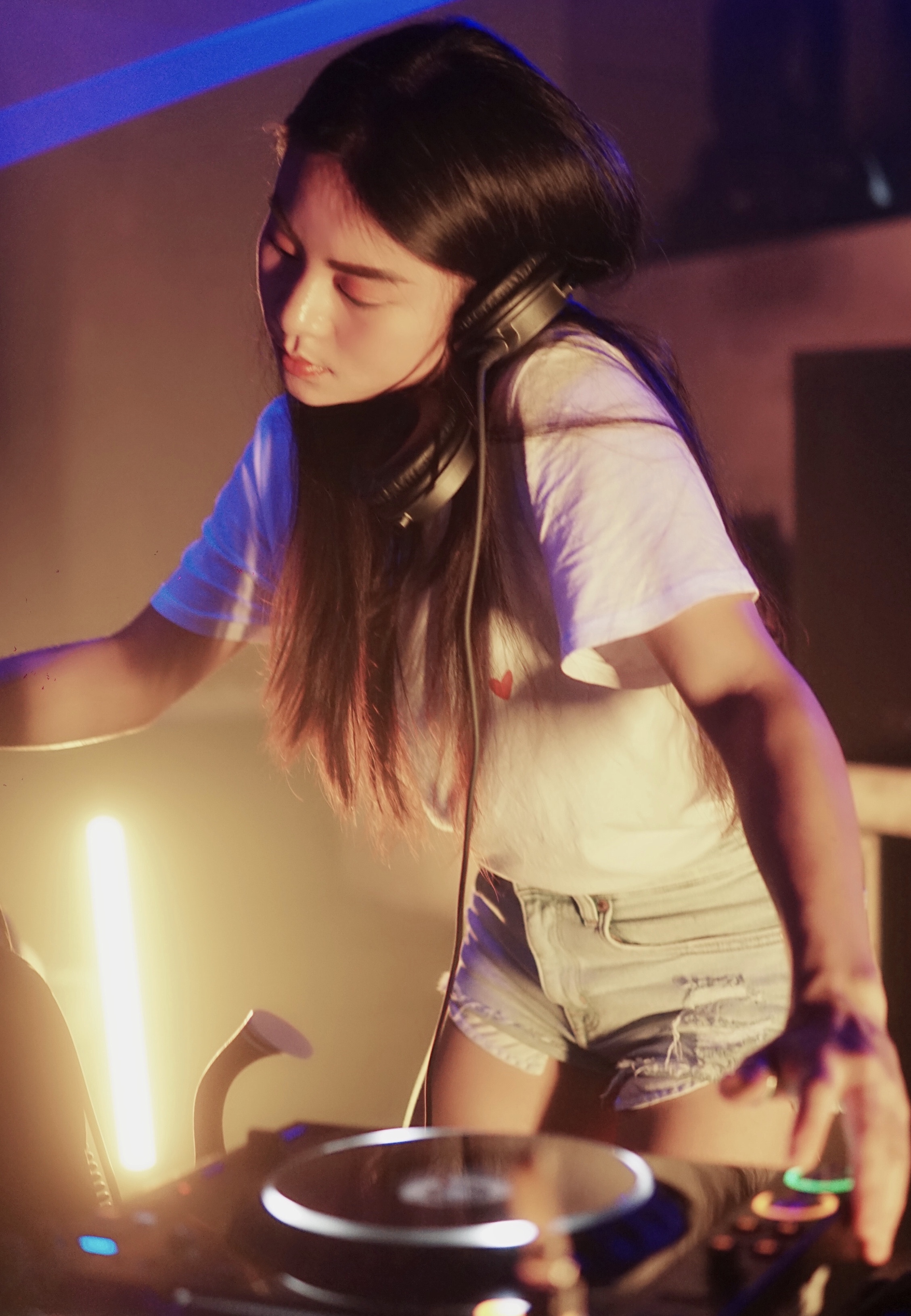Temple Rat
Meet producer and DJ from Shanghai, Yuxin Mei aka Temple Rat.
Tell us a little bit about yourself.
My name is Yuxin Mei, my friends just call me Mei, but on stage, I am Temple Rat. I come from a small city called Nanchong, located in the lush green Sichuan Basin in southwestern China. As one of the few existing traditional Erhu players in China who fuse the folk instrument with electronic music, I am also a producer and DJ.
Describe the city you’re living in and what it’s like to live there.
I don’t really know why I chose to live in Shanghai in the first place. After living in the vibrant city of Chengdu maybe I felt that I will be able to meet even more interesting people in this city and get in touch with international producers and a more tolerant and more significant creative scene. Although this comes with the price of higher pressure and inevitable loneliness, I still love this city that never sleeps.
The best thing is that you can always meet people focusing on their creative careers.
What is the best and worst thing about living in your city?
The best thing is that you can always meet people focusing on their creative careers. However, this year, Shanghai had a rigorous new policy, and many of my and my friends live gigs were canceled. I understand that the Chinese political culture is different, but I don’t know why urban policymakers try to support cultural activities on one day and then block them on the next. I believe we all have to work stronger and to promote our work better to melt innovating new ideas with traditional Chinese sounds so that no-one can resist, neither on the dance floor nor those simple minds that try to suppress art and creativity.
Give us 3 words that describe what it’s like to be a creative in your city.
tradition; fusion; wall-breaking
How did you start your career in art?
Many parents in the 1990s wanted their children to learn violin or piano as a hobby. Back then, I liked the piano, and my mother took me for some training lessons. However, after the first class, the teacher felt that my fingers were too short (*sic), so he told my mother that I was not suitable. Nowadays I think this is bullshit, but well I was tiny back then. But then, when he and my mum were chatting, I waited at the door and at this time, I saw an Erhu in the corner of the teacher’s house. It was an extraordinary instrument that looked like a gun and had the skin of a snake. It looked so very tempting, and because there are only a few people nowadays interested in inheriting this instrument and obviously the length of my fingers didn’t play a role back then, I chose to play it.
I saw an Erhu in the corner of the teacher’s house. It was an extraordinary instrument that looked like a gun and had the skin of a snake.
Were the people around you supportive of your decision on working as a creative?
Of course at the beginning people were skeptical if I could make a living on that, and maybe they still are, as in China women, artists are not widely accepted. We still have a very conservative mindset here. But when people found out that I am passionate about it and following my dream, their attitude towards me changed, and now I see more and more people coming up to me and supporting me. When I met my new boyfriend, he always encouraged me he is very proud of my work also nowadays young women come up to me and tell me they too try to follow this way and that I am an inspiration for them. This gives me a lot of strength
What are some goals and ambitions you have for your future work?
China is a very controversial country. I grew up in a very traditional environment. I have faced many cultural shocks during my growth. Slowly I began to understand that music can cross national borders and the borders in our minds. In 2019, I plan to make a new album about the ambient Erhu music in which I combine different sounds such as tapping and bouncing without using the fiddle of the Erhu. I also received a new string instrument called the Matouqin, which is a traditional Mongolian instrument that has a carved horse head at the top, I am trying to experiment with this instrument as well. I believe that music has no boundaries and boundaries manipulating existing instruments to play them in new ways has always lead to avant-garde innovations in music history
I grew up in a very traditional environment. I have faced many cultural shocks during my growth. Slowly I began to understand that music can cross national borders and the borders in our minds.
If you could collaborate with any person in the world who would it be?
Nils Frahm, his modified piano sounds and my Erhu, just imagine if for a second 🙂
How would you describe the women around you?
I am surrounded by strong and confident women; however, we all have many scars that society has left on us. This is what made us strong.
I am surrounded by strong and confident women; however, we all have many scars that society has left on us. This is what made us strong.
Were there any local female creatives that you looked up to when you were growing up?
I guess I speak for many women of my generation when I say Faye Wong is the one Chinese singer that inspired us the most when we were young, her style was always unique she lead us on new and innovative paths.
Are there any challenging aspects of being a female in your industry?
Ha, of course, name me a country where girls don’t face more significant challenges. This is true for female DJs, but even more, when you are a female producer.
Go and get yourself the love, the recognition and the hugs that you deserve and never forget your dreams and passion and where you came from.
Do you have any advice to young women who are aspiring to work in your field?
Go and get yourself the love, the recognition and the hugs that you deserve and never forget your dreams and passion and where you came from.
Photos courtesy of Yuxin Mei
Instagram:
Soundcloud:
Bandcamp:
Category:
ChinaDate:
July 17, 2019











